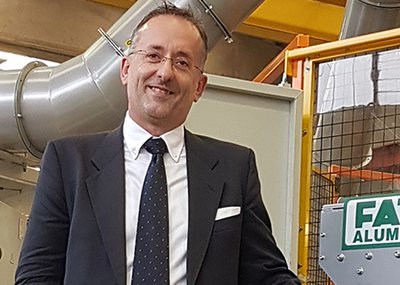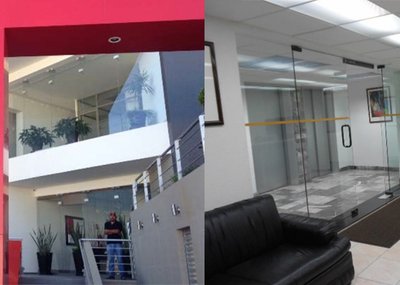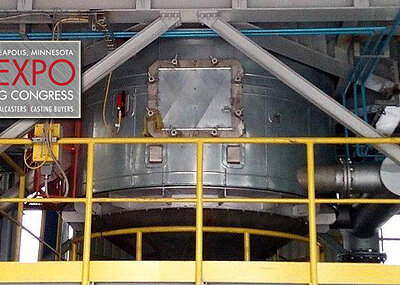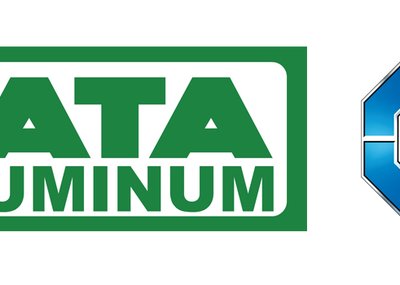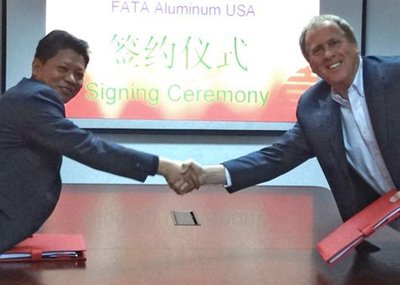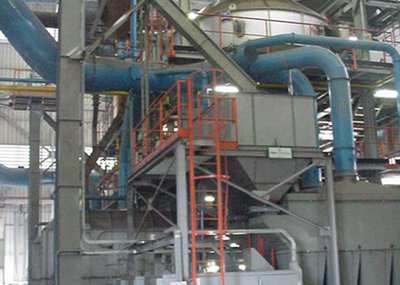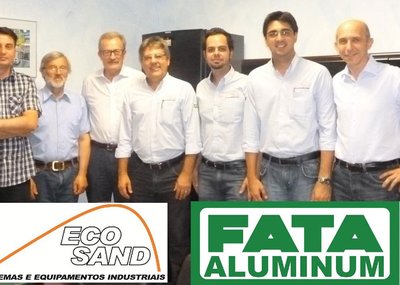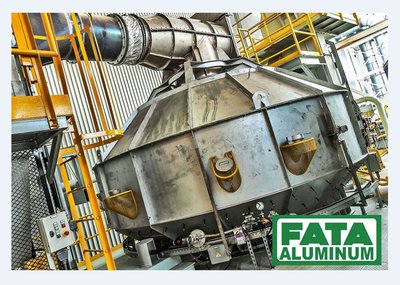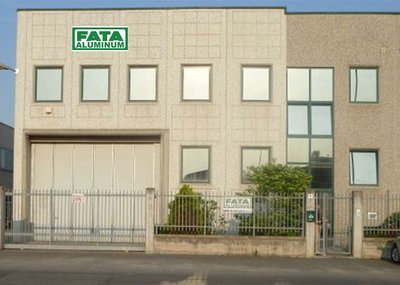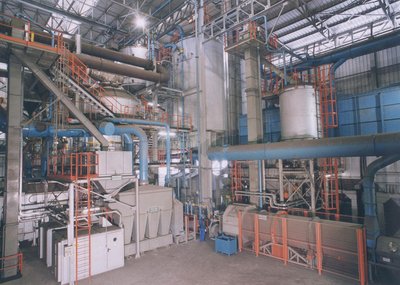Nowadays, the most common way of speaking about Industry 4.0 is to superficially link the discussion to only product traceability management. This is a limited viewpoint that ignores the true impact of the industrial revolution underlying the concept itself
The Foundry of the Future - FoF
(The Foundry of the Future is based on intelligent connectivity FoF), allowing it to automatically anticipate and avoid downtime, thus increasing production and giving it the flexibility to adapt to any new customer requirement)
Individual mechatronic components combining mechanical, electrical and computer engineering have been used in production for years, but they have now taken on an entirely new dimension and role in plant production by interconnection and communication as a single entity.
This is now practicable thanks to exponentially more powerful Cloud Computing, that allows analysis of ever increasing and variable data volumes while still arriving at conclusions in real-time. Thanks to this new information management capacity to use effective and functional self-correction, predictive maintenance and energy use, the production process can be fully optimized to lower costs. Previously, the only method to maintain competitive costs was to physically push systems beyond their productive limits
The benefits of this approach are best seen in aluminum casting foundries where:
• long-term product quality can be guaranteed by using statistical analysis and control of the many parameters and process trends;
• statistical analysis and operating trends to monitor the severe service operating parameters of machinery and systems, guaranteeing their availability by anticipating breakdowns and optimizing their preventive and/or predictive maintenance;
• Absolute traceability to guarantee the highest quality and component safety required in the automotive sector.
FATA Aluminum has perfected a simple and self-configuring IT application tool (“FATA FoF”) that allows the benefits of this approach to be fully utilized. The "FATA FoF" tool was designed for end-users, and is based on our knowledge of the aluminum casting process and systems. The power of this tool in system engineering and design phases can be optimized for the customer by melding mechanical, fluid dynamics and electrical design into a single technology.
In highly technical process areas, such as those found in certain foundry zones, an additional advantage consists in analytically controlling key parameters in real time - the system can automatically advise what corrective or proactive actions to take for process deviations, or someone with more expertise can act to avoid a remote location production crisis.
In this way, the best process personnel with the most expertise can immediately interact and work as a team to technically support remote locations, exponentially multiplying synergies that would not be possible individually and locally.
The eco-friendly foundry
(An eco-friendly objective using bio-mass in a traditional foundry setting or using inorganic resines in the core-molding process)
Even when optimizing foundry energy consumption, we should not neglect considering the global environmental impact from foundry activities.
Today the environmental problem with foundries that use organic resins in core production is the dispersal of untreated air containing olfactory emissions into the atmosphere outside the foundry. These contain low amounts of air pollution and in terms of smell, the substances used in foundries have a very low olfactory threshold, but they constitute important emission levels when taken in the context of total volume diffused over time during production
Even were the traditional emission treatment and abatement systems to be well-maintained and efficiently managed, often in-plant air ventilation and exchange is not done efficiently by the staff in charge of emission control.
In actuality, foundry exhaust air treatment is done on a schedule, but the various systems are scheduled separately, whereas exhaust air treatment should be taken in its contextual totality. Using a global approach, one can easily discover the various exhaust system performance variations caused by atmospheric conditions and the number of machines in production, all of which hinder emissions management.
Maintaining negative pressure inside a plant is the only way to contain or eliminate the spread of emissions under all possible operating conditions, and for the most part, production plants do not do that.
FATA Aluminum is able to analyze the plant and create an untreated emissions map, emissions that are then passed into the air around the plant.
Using these analyses, solutions for lessening the spread of emissions are quickly evident. However, the collection and channeling of these high air volumes for treatment, eliminating low concentrations of diffuse polluting emissions, is impossible when using the traditional methods normally used in the foundry.
FATA Aluminum proposes air pollution treatment solutions that are low in capital investment expenditures and have extremely low running costs. This type of treatment is based on proven technologies that are then applied to aluminum foundries that use biomass fluid beds having no environmental impact since such biomass transforms polluting molecules into CO2
For new foundries or for those foundries that want to use an even more eco-friendly approach, FATA Aluminum can work with the customer to co-engineer such a system, supplying the key inorganic process equipment (from core blowers to core shake-out machines to spent sand regeneration systems), studying the appropriate material flow for this process, and using technologies that guarantee optimal results.
In this case, diffused emissions do not exist, in as much this process does not require using volatile organic substances
Partner
Foundry Corporate News
Topic Automation
Topic Enviroment, Energy & Safety
Topic Sand & Binders
ECO FRIENDLY “ FOUNDRY OF THE FUTURE” (INDUSTRIE 4.0) FATA ALUMINUM TECHNOLOGY
Reading time: min
[11]


